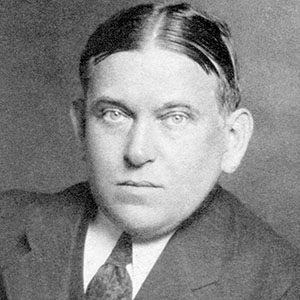HL Mencken was one of the most influential writers of the first half of the 20th century. While he was an accomplished literary critic, journalist and activist, Mencken is most well-known for his satirical commentary on the Scopes “Monkey” Trial of 1925.
Early Life
Henry Louis Mencken was born into a German-American family on September 12, 1880, in Baltimore, Maryland. He credited the gift of a printing press at the age of seven as spurring his journalism career. He also described reading Mark Twain’s Huckleberry Finn as “the most stupendous event in my life.” Mencken graduated from the Baltimore Polytechnic Institute in 1896, serving as class valedictorian. Rather than attend college, Menken elected to join the family cigar business.
Literary Career
Following the death of his father, Mencken set out to fulfill his dream of a career in journalism. He gained entry into the industry as a part-time reporter for the Baltimore Morning Herald and quickly worked his way up the ranks. Within four years, he was the managing editor of the newspaper.
When the Morning Herald closed in 1906, Mencken became the Sunday Editor of The Baltimore Sun and was later promoted to editorial writer. Five years later, he was given his own column, “The Free Lance,” which was published weekly for 18 years.
In 1919, Mencken published The American Language; An Inquiry into the Development of English in the United States, a critically-acclaimed multi-volume book about how the English language is spoken in the United States. Mencken served as co-editor of The Smart Set from 1914 to 1923. He went on to launch his own monthly literary magazine, The American Mercury.
Mencken touched on a wide-range of topics in his writing and always spoke his mind. “The two main ideas that run through all of my writing, whether it be literary criticism or political polemic are these: I am strong in favor of liberty and I hate fraud,” he stated.
During the trial of John T. Scopes, a high school teacher charged with violating a Tennessee law that banned teaching human evolution in any state-funded school, Mencken openly mocked religious fundamentalists. He was also an outspoken critic of President Franklin D. Roosevelt’s New Deal programs.
After suffering a stroke in 1948, Menken was forced to retire from the Baltimore Sun. After stepping back from journalism, Mencken focused on writing humorous and anecdotal essays drawn from his own life. They first appeared in the New Yorker and were later published in book form as Happy Days, Newspaper Days, and Heathen Days. Mencken died on January 29, 1956.








